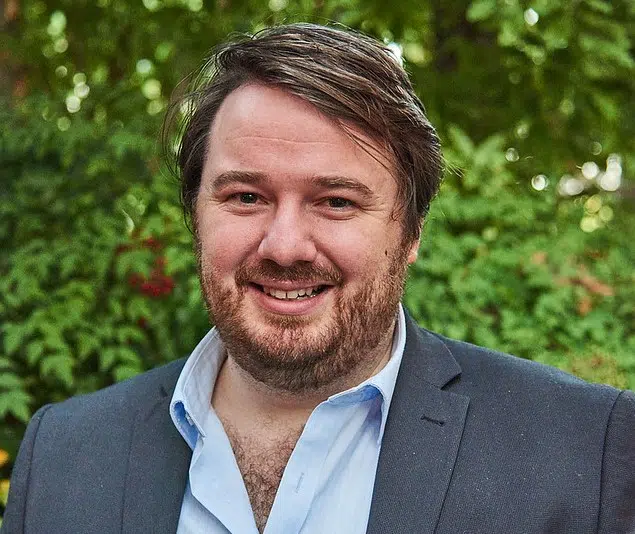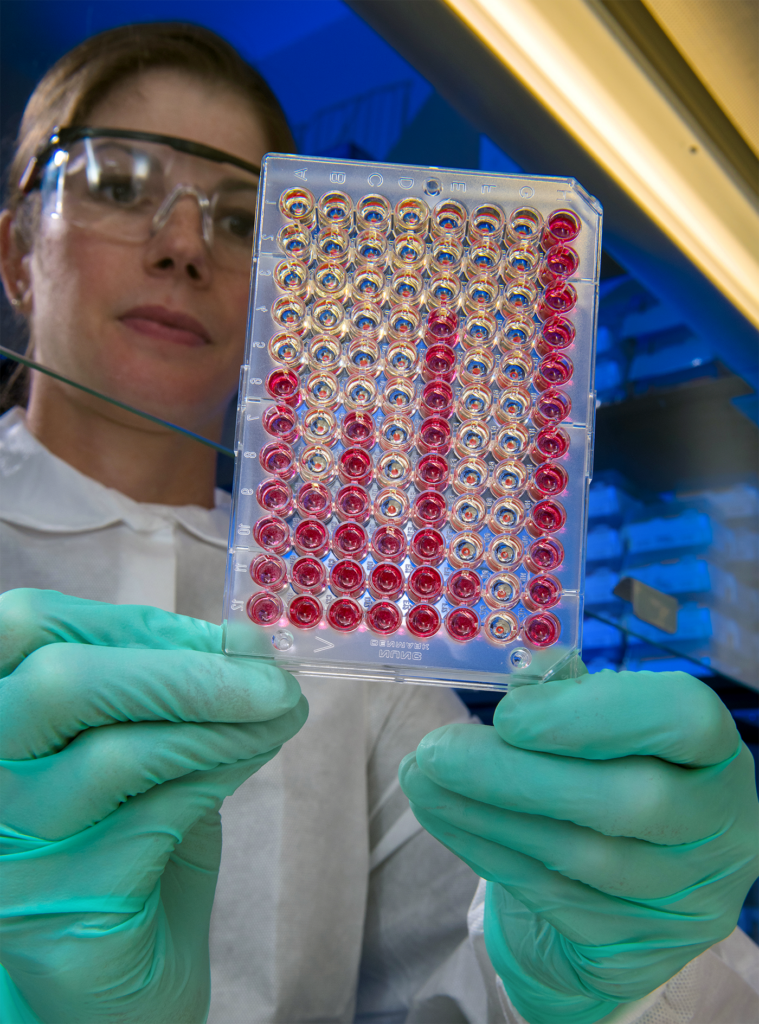Multi-Omic Approaches to Solve Post-Acute COVID-19 (MOSAIC)
The purpose of this study is to facilitate early detection of ME/CFS in people with Long COVID and better understand disease progression.
Precision research program to identify the unique biology of individuals and the unifying biological pathways of Myalgic Encephalomyelitis / Chronic Fatigue Syndrome (ME/CFS).
Established in 2020, the Melbourne ME/CFS Collaboration, directed by Christopher W. Armstrong, PhD, is a hub of research innovation and collaboration for ME/CFS and related conditions.
Dr. Armstrong’s interest in ME/CFS research was sparked by his interactions with patients and clinicians during his PhD in Biochemistry at The University of Melbourne, leading to a dedicated pursuit of understanding these complex diseases.
Latest Video

His innovative use of metabolomics to detect biochemical changes in patients was pivotal, capturing Linda Tannenbaum’s attention at a conference and resulting in his collaboration with Open Medicine Foundation (OMF) as a Science Liaison and a Visiting Scholar at Stanford University under Ronald W. Davis. This collaboration laid the foundation for OMF Australia, established to continue supporting Chris’ groundbreaking research upon his return to Melbourne.
The Melbourne ME/CFS Collaboration aims to decipher the common biological pathways in ME/CFS, acknowledging patient diversity in disease manifestation. Initially focusing on metabolic studies, the collaboration now champions precision medicine to understand each patient’s unique biology. Dr. Armstrong’s strategy includes expanding research networks within Australia and across the world, guiding new scientists in the field and bridging different patient groups to enhance collective understanding.
Under Dr. Armstrong’s leadership, the Melbourne ME/CFS Collaboration continues to be at the forefront of cutting-edge research, striving to unlock the complexities of ME/CFS and pave the way for targeted interventions and improved patient outcomes.
The purpose of this study is to facilitate early detection of ME/CFS in people with Long COVID and better understand disease progression.
The study aims to explore the structural, neuro-vascular, and biochemical differences in the brains of individuals with ME/CFS, Long COVID, and POTS to elucidate the underlying pathology and identify potential targets for effective treatment strategies.
The study aims to deeply characterize patients before, during and after treatments are trialed through their GP. Producing large scale data in combination with treatment outcome will be used to produce a predictive algorithm to improve the connection of patients to appropriate treatment options sooner.
The study aims to investigate how hormone fluctuations in individuals with ME/CFS and Long COVID, compared to healthy controls, impact metabolism and immune pathways by measuring hormones, metabolites, and inflammation markers in biofluid samples.
The study aims to investigate the effects of supine vs upright exercise on cerebral blood flow, blood pressure, heart rate, and the presence of autoimmune antibodies in ME/CFS patients with orthostatic intolerance, compared to controls, to understand the underlying mechanisms and differences in symptom severity and post-exertional malaise.
The study will compare biological markers during mild symptoms and flare/PEM events in individuals with ME/CFS, alongside PTLDS and Long COVID patients, using finger-prick blood samples and continuous data from wearable sensors to understand symptom variability.
The study aims to utilize the Australian ME/CFS biobank for metabolomics analyses and other assays to identify potential biomarkers for Myalgic Encephalomyelitis/Chronic Fatigue Syndrome, contributing to a comprehensive dataset for large-scale analysis.
This study seeks to understand the biological mechanisms driving the symptomatology of Myalgic Encephalomyelitis/Chronic Fatigue Syndrome (ME/CFS) using metabolomic and lipidomic high-throughput analysis and high-frequency blood sampling over a 6.5 to 7.5 hour period conducted at two separate sites (Melbourne and Uppsala).
This study will investigate the metabolite signatures of ME/CFS patient stool, urine and blood samples and the impact that comorbidities (IBS and Fibromyalgia) have on these signatures.
This project will develop a software tool to rapidly look for metabolism anomalies in an individual which might be explained by their genes. It will also look for potentially damaging genes in individuals and it will attempt to group ME/CFS patients based on their genetic and metabolic profiles.
This project aims to test the nitrogen hypothesis, which is that damaging, nitrogen-containing by-products of energy metabolism accumulate more readily in the cells of ME/CFS patients.
The aim of this project is to fully characterise eye movement changes in ME/CFS on two consecutive days, identifying an ocular motor signature that is unique to the disorder.
This study seeks to understand pathological mechanisms of pediatric ME/CFS (13 to 18 years old), using case-control and longitudinal study design that meshes clinical measures and omics methods.
The goal of this research is to reveal more information about the role of immunology and neuroinflammation in ME/CFS, and the underlying mechanisms of related pathogenesis that takes place.
Decode the molecular mechanisms underlying ME/CFS and contributing to specific symptoms with a particular emphasis of post-exertional malaise (PEM). This includes deep phenotyping of ME patients and global proteomic/metabolomics plasma profiling of ME..
To carry out these ambitious projects, Dr. Armstrong is establishing networks and collaborations extending to USA, UK, Sweden, and other Australian institutions.

University of Melbourne, Australia
Paul Gooley, PhD
Natalie Thomas, PhD
Kathy Huang
Amber Jaa-Kwee
Elena Christopolous
Xiaoyun Wang, PhD
David Fineberg, MBBS, FRACGP, DCH
Neil McGregor, PhD
David Ascher, PhD
Elisha Josev, PhD
Sarah Knight, PhD
Adam Scheinberg, FRACP, FAFRM, MMed(ClinEpi)
Elena Schneider-Futschik, PhD
Kristin Brown, PhD
Michael Menden, PhD
Leigh Johnston, PhD
Rebecca Glarin, BApSc, PGDip(MRI)
Rob Williams
Bradford Moffat, PhD
Christopher Rowe, BMBS, FRACP, MD, FAANMS
Stanford University, USA
Ronald Davis, PhD
Michael Snyder, PhD
Robert Phair, PhD
Laurel Crosby, PhD
Jaime Seltzer
Linda Lan, PhD
Yue Wu, PhD
Jessi Li
Longsha, Liu
Harvard-Affiliated Hospitals, USA
David Systrom, MD
Wenzhong Xiao, PhD
Uppsala University, Sweden
Jonas Bergquist, MD, PhD
University of Montreal, Canada
Alain Moreau, PhD
University of Alabama Birmingham, USA
Jarred Younger, PhD
University College London, UK
Jo Cambridge, PhD
Massachusetts Institute of Technology, USA
Michal Tal, PhD
Beth Pollack
La Trobe University, Australia
Sarah Annesley, PhD
Paul Fisher, PhD
Daniel Missailidis, PhD
Australian National University, Australia
Brett Lidbury, PhD
Alice Richardson, PhD
Monash University, Australia
Joanne Fielding, PhD
Meaghan Clough, PhD
Caroline Gurvich, Dpsych
Jade Bartholomew
Macquarie University, Australia
Benjamin Heng, PhD
Baker Institute, Australia
Keegan Moneghetti, FRACP, PhD
Murdoch Children’s Research Institute, Australia
Tracey Chau, PhD
Victoria University, Australia
Joshua Johnson, PhD
South Australian Health and Medical Research Institute (SAHMRI), Australia
Martin Lewis, PhD
Michael Musker, PhD
Please help us expand our research efforts across the globe. Every donation brings us closer to a fully-funded research effort and the answers we all seek.
OMF Australia Limited is a Health Promotion Charity, established for the purpose of promoting and funding research into multi-system chronic complex diseases, and supports the Melbourne ME/CFS Collaboration.
OMF is a non-profit 501(c)(3) organization
(EIN# 26-4712664). All donations are tax-deductible to the extent allowed by law.



Open Medicine Foundation®
29302 Laro Drive, Agoura Hills, CA 91301 USA
Phone: 650-242-8669
info@omf.ngo
Copyright © 2025 Open Medicine Foundation. All Rights Reserved.
What are the advantages of giving from your Donor Advised Fund (DAF)?
How do I make a donation through my DAF?
Just click on the DAF widget below. It is simple and convenient to find your fund among the over 900 funds in our system.
Still can’t find your fund?
Gifting of Stock
Broker: Schwab
DTC #: 0164
Account #: 47083887
Account Registered as:
Open Medicine Foundation
29302 Laro Drive
Agoura Hills, CA 91301
Please speak to your personal tax advisor and then email or call OMF at 650-242-8669 to notify us of your donation or with any questions.